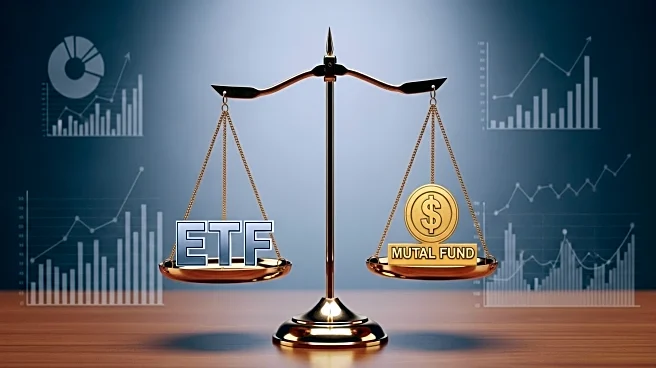What's Happening?
Financial advisors are emphasizing the differences between exchange-traded funds (ETFs) and mutual funds, which are both popular investment vehicles. ETFs trade like stocks on exchanges, allowing investors to know their purchase price immediately, whereas mutual funds are transacted directly with the fund, with prices determined at the end of the trading day. ETFs are noted for their tax efficiency, as they rarely distribute capital gains, unlike mutual funds. Additionally, ETFs tend to have lower expense ratios compared to mutual funds, making them cheaper for investors. Despite these advantages, mutual funds offer a larger universe of investment options, which may be preferable for some investors.
Why It's Important?
Understanding the differences between ETFs and mutual funds is crucial for investors looking to optimize their portfolios. ETFs offer tax advantages and lower fees, which can lead to significant savings over time. However, mutual funds provide access to a broader range of investment strategies, which may be necessary for certain investors. The choice between these two investment types can impact an investor's financial outcomes, particularly in terms of tax liabilities and investment costs. As ETFs continue to grow in popularity, investors need to weigh these factors carefully to make informed decisions.
What's Next?
Investors may continue to see a shift towards ETFs as mutual fund managers increasingly launch ETF versions of their strategies. This trend could lead to more options and potentially lower costs for investors. Additionally, as the financial industry evolves, there may be further innovations in investment products that could change the landscape of personal finance. Investors should stay informed about these developments to adapt their strategies accordingly.










